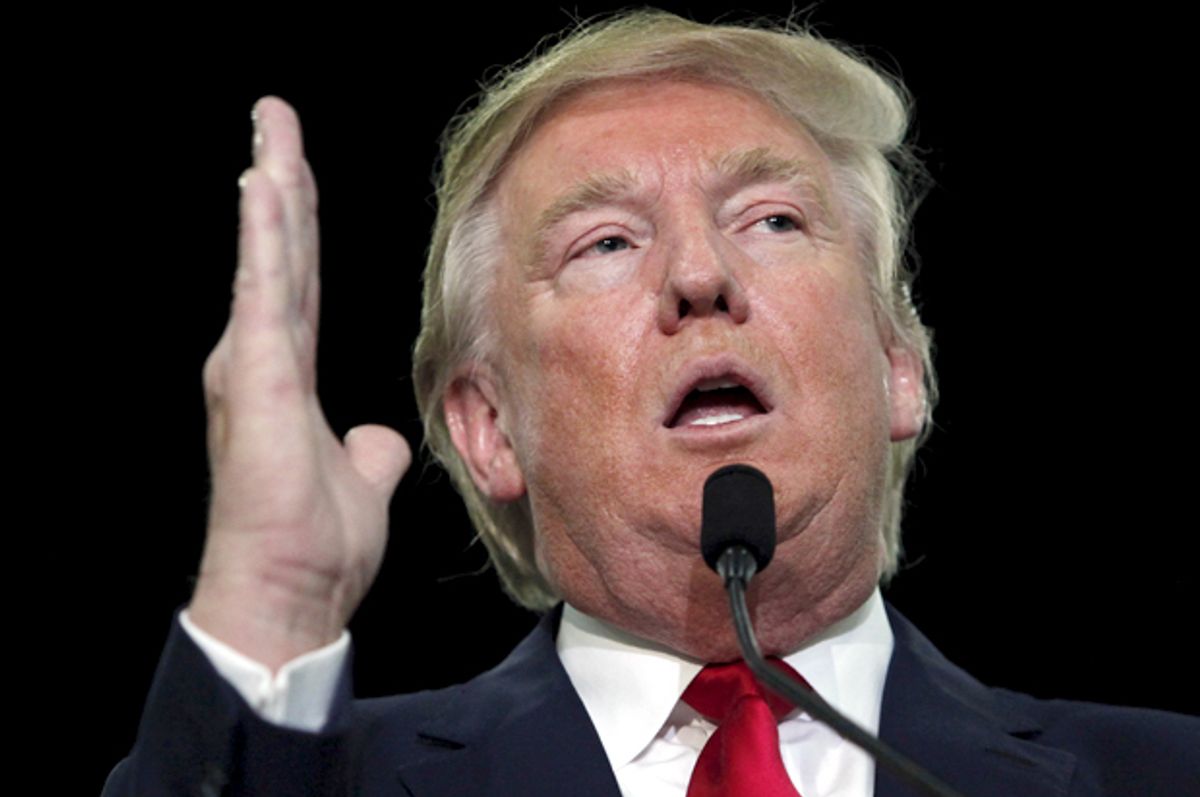As I sat in a waiting room Monday, listening to the words of Donald Trump blaring on the television screen, calling for a halt to all Muslim immigration or even tourism to the U.S., I initially began to shrug them off as another instance of his provocative antics. After all, much of Trump’s notoriety stems from the endless amount of satire shared at his expense. However, as I thought of my surroundings, of sitting in a room where everyone around me knew I was Muslim due to my headscarf, I soon became mortified by this flagrant attempt to exclude and vilify me and those who share my faith.
Yes, Islamophobia is real. Yes, Muslims have faced discrimination since before 9/11 and before the proliferation of rhetoric focused on terrorism. However, for a man vying to become president of the United States to have the platform to utter such a statement in the 21st century is nothing short of repulsive and distressing. To reduce his abhorrent vitriol to a mere farce or simply another instance of political high jinks is to normalize the presence of such destructive and polarizing rhetoric in our national consciousness. To dismiss him as laughable is to detract from critical examination of the insidious impact of his words.
For all of Trump’s talk of putting an end to Muslim radicals entering the U.S., I thought to myself, where was Trump radicalized? What conditions led to the advent of such an influential figure spewing such hate in the American mainstream?
I posed this question to Twitter, where I received more than 2,000 retweets and a plethora of replies, and as I read through the multitude of responses, the answer was simple enough: He was radicalized in the United States of America.
As a nation, we cannot divorce the rise of a political figure like Donald Trump from the institutions and conditions that bred him. With the rise of someone who many have dubbed a neo-fascist figure, we witness the capacity of any ideology to lead to radicalization. Though Trump has made it his business to focus on dealing with the issue of radicalization of Muslims, we see in him that any individual may be radicalized by distorting a benign system of beliefs, or by adopting an inherently deleterious ideology. Perverse racism, cutthroat capitalism or destructive colonialism can lead to radicalization in those who espouse such beliefs. They can also foster the conditions for radicalization by those pushing back against oppressive systems. Radicalization is not a phenomenon reserved exclusively for Muslims.
As Americans, we must reflect and ask ourselves, how has our nation allowed someone like Trump to reach such prominence? Why are his racist and ableist statements allowed to slide, as he maintains his popularity? Why are his xenophobic sentiments championed by so many? It’s not only about his hateful agenda toward Muslims; it’s greater than that. America, how could we let this happen?
Playwright and cultural figure Arthur Miller wrote his famous work "The Crucible" as an allegory for the Communist witch hunts of the McCarthy era. A critic of the government’s restrictions and impositions on free thought, Miller warned of the dangers of drawing a relationship between political opposition and good versus evil.
“Political opposition, thereby, is given an inhumane overlay which then justifies the abrogation of all normally applied customs of civilized intercourse. A political policy is equated with moral right, and opposition to it with diabolical malevolence,” he wrote.
The supporters of Trump and his ilk have painted a picture of an America free from these purported forces of evil -- free from the threat of “diabolical malevolence” from Muslims like myself. They portray it as an apocalyptic struggle between the lovers and defenders of freedom, and the dark forces of oppression. Indeed, the conventional elements of civilized discourse have been abandoned in favor of fear-mongering, hysteria and suspicion. And as we know from history and psychology, fear is infectious.
Neo-McCarthyites in government such as Rep. Peter King, who spearheaded the House Committee on Homeland Security hearings titled "The Extent of Radicalization in the American Muslim Community and That Community's Response," and former congressman Joe Walsh who tweeted, “Our goal is to remain free & safe. Too many Muslims around the world don't believe in freedom & want to hurt us. So we keep em out,” allow the misconception that radicalization and domestic terrorism are problems endemic to the Muslim community alone. The reality is that most mass shootings in America have been carried out by white men, according to data published by Mother Jones magazine. This is a fact.
Once a mainstream figure is able to divide society along religious, ethnic or racial lines, to implicate millions of Americans as being aligned with a force of evil, and to insinuate that only those that align with his vision of America are morally sound, then we are all at a loss. Such a tactic serves only to further polarize, alienate and exclude a vital part of the fabric of this nation.
The past has proven that such hysteria is temporary, but not without dire lasting consequences for those affected.


Shares